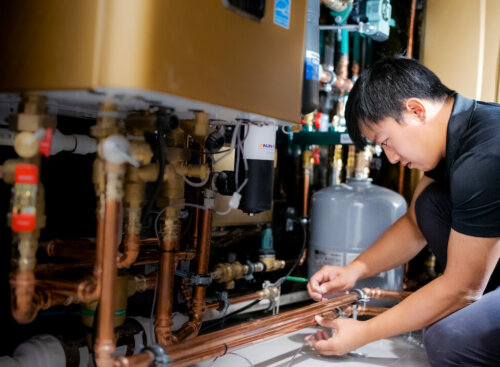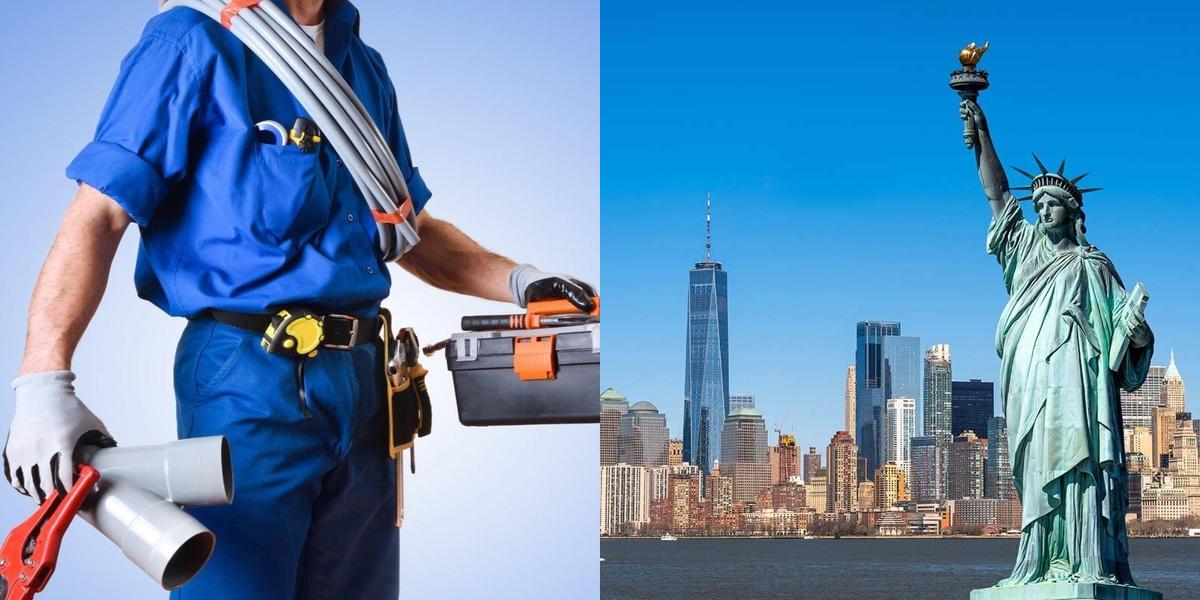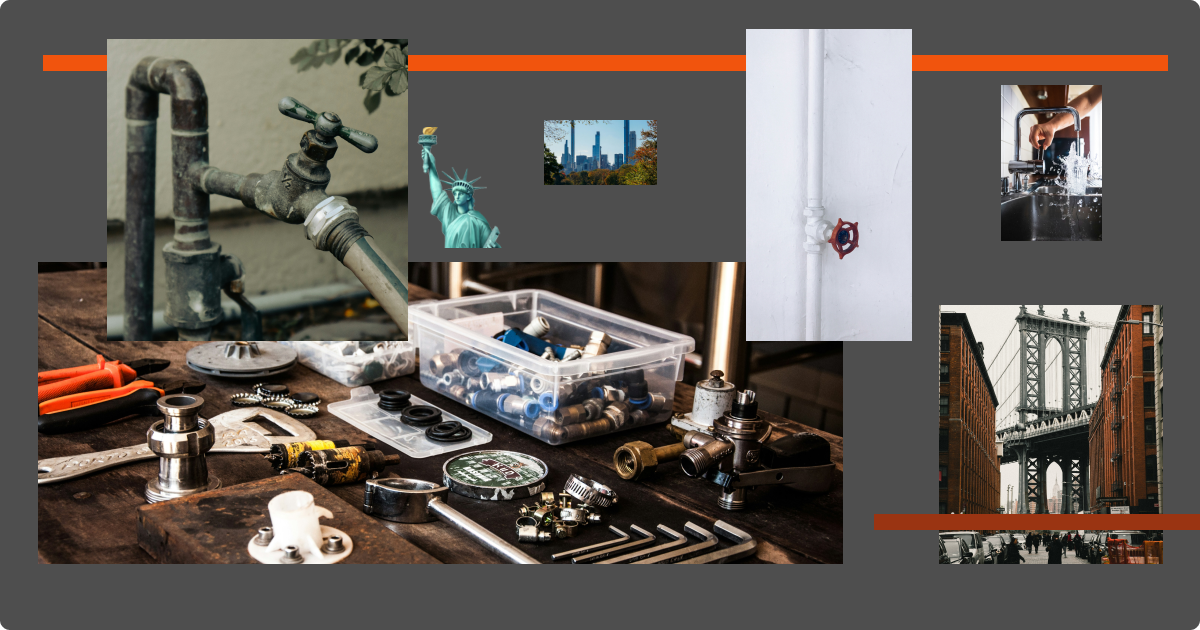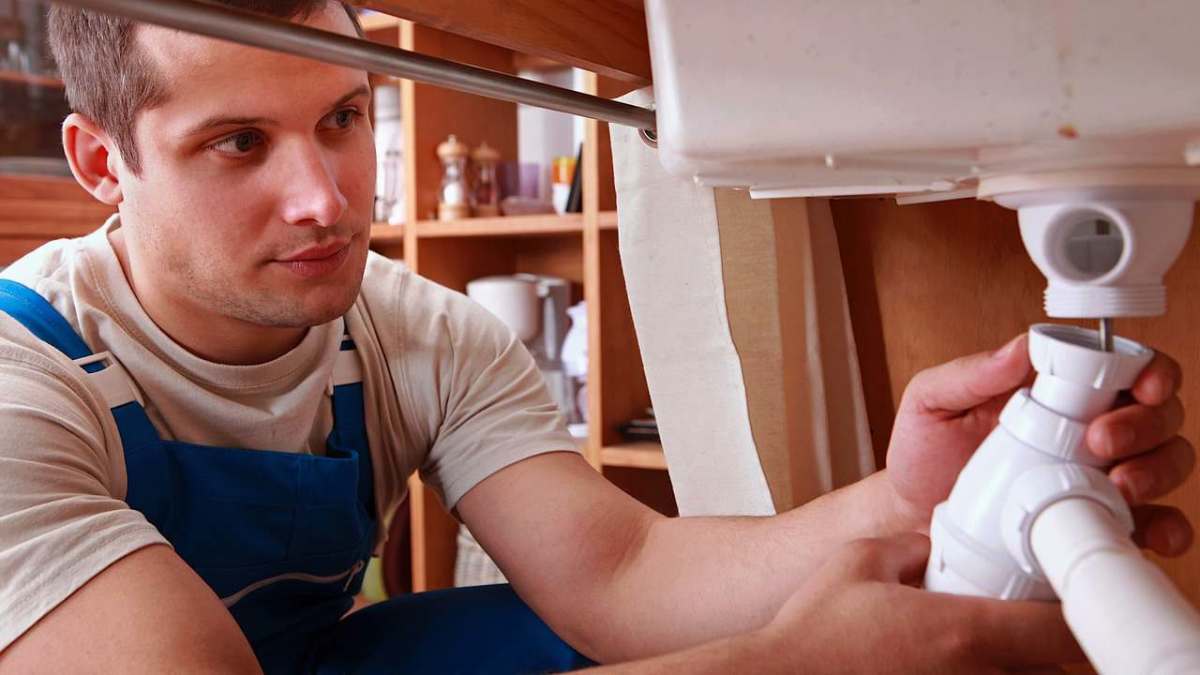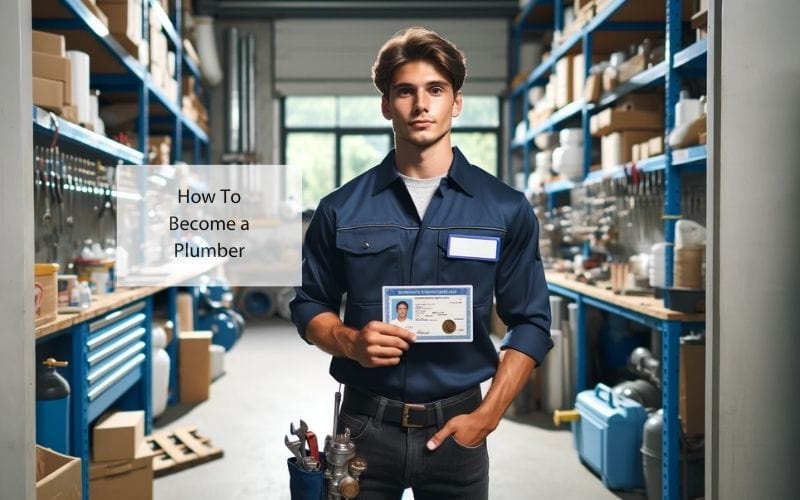How To Become A Plumber In Ny

New York, with its bustling cities and diverse infrastructure, offers a robust and rewarding career path for skilled plumbers. From maintaining historic brownstones to installing cutting-edge plumbing systems in new developments, the demand for qualified plumbers is consistently high. This comprehensive guide outlines the steps to become a licensed plumber in New York, covering everything from apprenticeships to advanced certifications.
Understanding the Plumbing Landscape in New York
Before embarking on your plumbing journey, it's crucial to understand the licensing requirements and the overall job market. In New York, plumbing regulations are primarily managed at the city or county level. This means that requirements can vary slightly depending on where you plan to work. Generally, you'll need to obtain a license to operate as a master plumber.
According to the Bureau of Labor Statistics (BLS), the median annual wage for plumbers, pipefitters, and steamfitters in New York was approximately $75,000 as of May 2023. However, this figure can vary significantly based on experience, location, and specialization. Highly skilled plumbers with specialized certifications and experience in high-demand areas like New York City can earn considerably more.
The job outlook for plumbers in New York remains positive. Factors such as aging infrastructure, new construction projects, and a growing emphasis on water conservation technologies are driving demand. As experienced plumbers retire, there's an increasing need for qualified professionals to fill the gap.
Step-by-Step Guide to Becoming a Licensed Plumber in New York
1. Education and Training
The foundation of a successful plumbing career lies in a solid educational background and practical training. While a formal college degree isn't typically required, completing a vocational program or apprenticeship is essential. Many aspiring plumbers choose to attend trade schools or community colleges that offer plumbing-related courses. These programs cover topics such as:
- Plumbing codes and regulations
- Blueprint reading
- Pipefitting techniques
- Drainage systems
- Water heater installation and repair
While classroom learning is valuable, the majority of your training will come through on-the-job experience as an apprentice.
2. Apprenticeship Programs
An apprenticeship is arguably the most crucial step in becoming a licensed plumber in New York. Apprenticeships provide supervised, hands-on training under the guidance of experienced plumbers. These programs typically last between 4 to 5 years and involve a combination of classroom instruction and practical work.
There are two primary avenues for finding an apprenticeship:
- Union Apprenticeships: Union apprenticeships, such as those offered by the United Association of Journeymen and Apprentices of the Plumbing and Pipefitting Industry (UA), are highly sought after. These programs provide comprehensive training, competitive wages, and benefits. Applying for a union apprenticeship can be competitive, but the rewards are significant.
- Non-Union Apprenticeships: Non-union apprenticeships are offered by individual plumbing companies or contractor associations. These programs may vary in quality and structure, so it's essential to research potential employers thoroughly. Look for companies with a strong reputation for training and development.
During your apprenticeship, you'll gain experience in a wide range of plumbing tasks, including:
- Installing and repairing pipes and fixtures
- Troubleshooting plumbing problems
- Working with different types of plumbing materials (copper, PVC, PEX)
- Understanding and applying plumbing codes
3. Experience Requirements
In addition to completing an apprenticeship, most licensing jurisdictions in New York require a certain number of years of practical experience before you can apply for a master plumber's license. The specific requirements vary depending on the city or county, but typically, you'll need at least 2 to 5 years of experience as a journeyman plumber after completing your apprenticeship.
4. Licensing Examination
Once you've met the education, apprenticeship, and experience requirements, you'll be eligible to sit for the master plumber's licensing examination. The exam typically covers a broad range of plumbing topics, including:
- Plumbing codes (e.g., the Uniform Plumbing Code)
- Blueprint reading
- Plumbing system design
- Troubleshooting and repair
- Safety regulations
The exam is often administered by the local licensing board or a third-party testing agency. It's crucial to prepare thoroughly for the exam by studying plumbing codes, practicing sample questions, and reviewing your apprenticeship training materials. Many plumbers also take preparatory courses to increase their chances of passing.
5. Obtaining Your Master Plumber's License
After successfully passing the licensing examination, you'll be granted a master plumber's license. This license allows you to operate as a licensed plumbing contractor in the jurisdiction where it was issued. Keep in mind that you may need to renew your license periodically and complete continuing education requirements to stay up-to-date with the latest plumbing codes and technologies.
Advanced Certifications and Specializations
While a master plumber's license is the primary credential for plumbers in New York, obtaining additional certifications can enhance your skills, increase your earning potential, and open doors to specialized career opportunities. Some popular certifications for plumbers include:
- EPA 608 Certification: This certification is required for plumbers who work with refrigerants in air conditioning and refrigeration systems. It demonstrates your knowledge of refrigerant handling and environmental regulations.
- NATE Certification: The North American Technician Excellence (NATE) certification is a nationally recognized credential that validates your expertise in HVAC systems. While not strictly a plumbing certification, it can be valuable for plumbers who work with integrated plumbing and HVAC systems.
- Backflow Prevention Assembly Tester Certification: This certification allows you to test and repair backflow prevention devices, which are essential for protecting potable water supplies from contamination.
- Medical Gas Piping Certification: Plumbers who work on medical gas systems in hospitals and healthcare facilities need this specialized certification.
In addition to certifications, you can also specialize in specific areas of plumbing, such as:
- Commercial Plumbing: Working on large-scale plumbing systems in commercial buildings.
- Residential Plumbing: Focusing on plumbing services for homeowners.
- Service and Repair: Specializing in troubleshooting and fixing plumbing problems.
- New Construction: Installing plumbing systems in new buildings.
- Green Plumbing: Focusing on water conservation technologies and sustainable plumbing practices.
Career Paths for Plumbers in New York
A plumbing career in New York offers a variety of career paths and opportunities for advancement. Some common career paths include:
- Plumbing Contractor: Owning and operating your own plumbing business. This requires strong business skills, as well as technical expertise.
- Service Technician: Working for a plumbing company or contractor and providing service and repair to customers.
- Project Manager: Overseeing plumbing projects from start to finish, coordinating with other trades, and managing budgets.
- Plumbing Inspector: Working for a government agency and inspecting plumbing systems to ensure compliance with codes and regulations.
- HVAC Technician (with Plumbing Skills): Combining plumbing skills with HVAC expertise to offer a broader range of services.
Real-World Examples
Example 1: Maria started as an apprentice with a union plumbing company in Brooklyn. After completing her apprenticeship and obtaining her master plumber's license, she worked as a service technician for several years before eventually starting her own plumbing business. She now specializes in residential plumbing repairs and renovations.
Example 2: David completed a vocational program in plumbing and then found an apprenticeship with a commercial plumbing contractor in Manhattan. He gained experience working on large-scale plumbing systems in office buildings and retail spaces. He eventually obtained his medical gas piping certification and now specializes in working on medical gas systems in hospitals.
Staying Ahead of the Curve
The plumbing industry is constantly evolving, with new technologies, materials, and codes emerging regularly. To stay ahead of the curve and maintain your competitive edge, it's essential to commit to lifelong learning. Here are some ways to stay informed and up-to-date:
- Attend industry conferences and trade shows.
- Take continuing education courses.
- Read industry publications and online resources.
- Network with other plumbers and professionals.
- Stay informed about changes to plumbing codes and regulations.
Furthermore, consider exploring emerging trends in the plumbing industry, such as smart plumbing systems, water conservation technologies, and sustainable plumbing practices. These areas offer significant opportunities for plumbers who are willing to adapt and innovate.
Conclusion
Becoming a licensed plumber in New York requires dedication, hard work, and a commitment to ongoing learning. However, the rewards of a successful plumbing career can be significant, including job security, competitive wages, and the satisfaction of providing essential services to your community. By following the steps outlined in this guide and continuously investing in your skills and knowledge, you can build a fulfilling and rewarding career in the plumbing industry.


